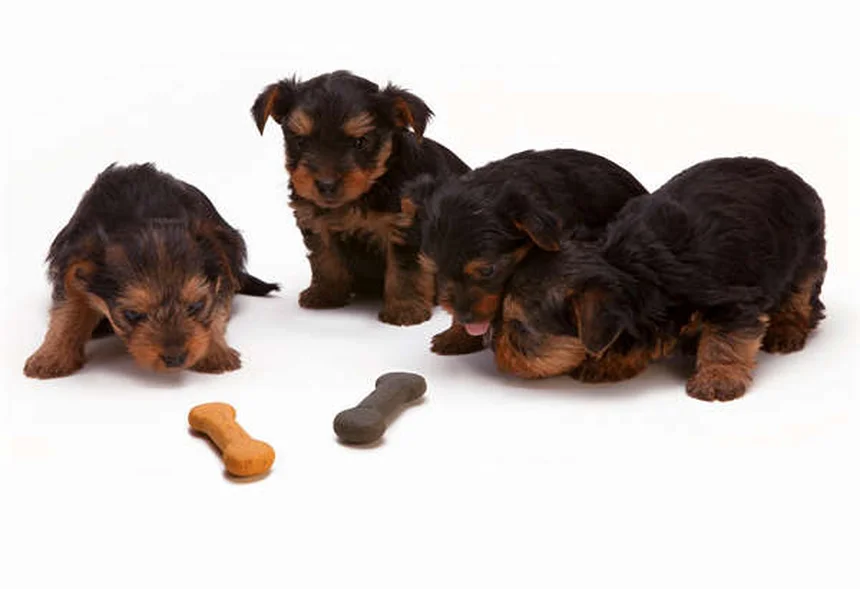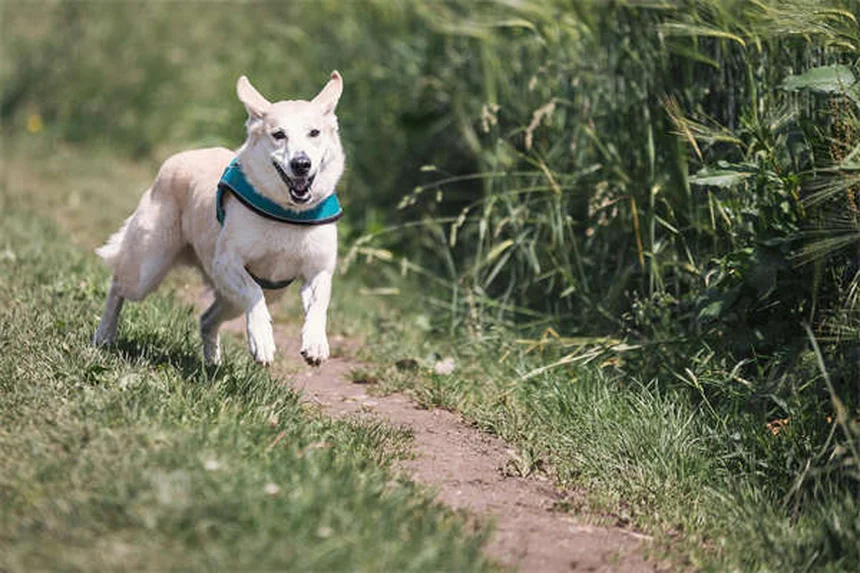Do rabbits need vaccines? The answer is absolutely yes! With dangerous viruses like RHDV2 spreading across 23 states, vaccinating your bunny has become essential pet care. I've seen too many heartbroken owners who waited too long - don't let that be you. The RHDV2 vaccine offers 90% protection and could save your rabbit's life. While no vaccine is 100% effective, combining it with simple biosecurity measures gives your fluffy friend the best chance at a long, healthy life. Let me walk you through everything you need to know about rabbit vaccination in plain English - no confusing vet jargon here!
E.g. :Myxomatosis in Rabbits: Symptoms, Treatment & Prevention (2024 Guide)
Hey there rabbit lovers! Let's talk about something super important - keeping your fluffy friend healthy. Vaccines aren't just for humans, they're crucial for our bunny buddies too. With new rabbit diseases popping up, vets across the U.S. are recommending vaccines more than ever.
Did you know that in 2021 alone, over 10,000 pet rabbits received vaccinations? That number keeps growing as more owners learn about these life-saving shots. Your rabbit depends on you to make these important health decisions.
So what exactly is a vaccine? Think of it like a training session for your rabbit's immune system. The vaccine contains either:
This "practice run" helps your bunny's body recognize and fight off the real disease later. Pretty cool, right? It's like giving your rabbit's immune system a cheat sheet for the test!
 Photos provided by pixabay
Photos provided by pixabay
Rabbit Hemorrhagic Disease Virus (RHDV2) is the scariest threat to domestic rabbits today. Here's why it keeps vets up at night:
| Feature | RHDV | RHDV2 |
|---|---|---|
| First appeared in U.S. | 2010 | 2018 |
| Mortality rate | 40-60% | 70-100% |
| States affected | 12 | 23 |
This nasty virus attacks the liver and causes severe internal bleeding. The worst part? Many rabbits show no symptoms before suddenly collapsing. That's why prevention is absolutely critical.
You might be wondering - how could my indoor rabbit catch this? Here's the scary truth:
RHDV2 can hitch a ride into your home on your shoes, clothes, or even through insects. It survives for weeks on surfaces like grass, clothing, or cages. One sniff of contaminated hay could be enough to infect your precious bunny.
I once met a rabbit owner who lost three pets before learning about the vaccine. Don't let this happen to you! The vaccine offers 90% protection when given properly.
Currently available in 45 states, this vaccine is your best defense against the deadly RHDV2. While not fully FDA approved yet, studies show it's safe and effective.
Common side effects include:
Think of these minor discomforts as a small price to pay for potentially saving your rabbit's life!
 Photos provided by pixabay
Photos provided by pixabay
Here's some disappointing news - the U.S. doesn't yet approve the Myxomatosis vaccine that's available in Europe. This flea-spread disease causes:
If you live in Oregon, California, or near Mexico, talk to your vet about extra flea prevention measures. Monthly Revolution treatments can help protect your bunny.
The RHDV2 vaccine requires two initial doses, 3 weeks apart. After that, your rabbit needs annual boosters to stay protected. Here's a typical schedule:
1. First dose at 4 weeks old (yes, they can get it that young!)
2. Second dose 3 weeks later
3. Yearly booster shots
But wait - is there a best time of year to vaccinate? Actually, no! The important thing is keeping up with the schedule. Mark your calendar and set reminders so you don't forget those boosters.
Do show bunnies need extra protection? Not exactly, but they do face higher exposure risks. If your rabbit travels to shows or meets many other rabbits, consider:
Remember, a sick show rabbit means no ribbons - and worse, no healthy bunny to cuddle at home!
 Photos provided by pixabay
Photos provided by pixabay
No vaccine is 100% effective, so you need multiple layers of protection. Here are simple habits that could save your rabbit's life:
- Leave outdoor shoes at the door - viruses hitchhike on soles
- Wash hands before handling - soap and water work wonders
- Avoid wild rabbit areas - no picking dandelions from parks
- Use mosquito netting for outdoor play areas
These precautions take seconds but provide huge protection. Make them part of your daily routine!
If you've had an RHDV2 case (heaven forbid!), proper cleaning is crucial. Here's what works:
1. Remove all bedding and organic material
2. Scrub with soap and water
3. Disinfect with diluted bleach (½ cup per gallon)
4. Let sit for 5 minutes before rinsing
Wear gloves and eye protection - safety first! For tough jobs, products like Virkon or Rescue work great too.
This is probably your biggest worry, right? The truth is, it's a quick pinch - over before your rabbit knows what happened. Most bunnies forgive you by treat time!
Seriously though, the momentary discomfort is nothing compared to the suffering of RHDV2. Your vet knows techniques to make it as stress-free as possible.
Reactions are rare, but watch for:
If you see these, call your vet immediately. But remember - millions of rabbits have been safely vaccinated worldwide. The benefits far outweigh the risks.
Now that you're armed with knowledge, here's what to do next:
1. Call your vet - Ask about vaccine availability in your area
2. Schedule an appointment - Don't put it off!
3. Implement biosecurity - Start those healthy habits today
4. Share this info - Help protect other rabbits too
Your bunny gives you so much love - returning that care with proper protection is the greatest gift you can give. Vaccination could mean many more happy years together!
You know vaccines protect against deadly diseases, but did you realize they also help the entire rabbit community? When we vaccinate our bunnies, we're creating herd immunity that protects rabbits who can't get vaccinated due to age or health conditions. It's like forming a protective bubble around our furry friends!
Here's something fascinating - vaccinated rabbits often have better overall health. Their immune systems become more efficient at recognizing threats, which means they might fight off minor illnesses faster. I've noticed my vaccinated bunnies bounce back quicker from small colds than unvaccinated ones did in the past.
Let's talk dollars and sense. The RHDV2 vaccine typically costs between $25-$50 per dose. At first glance, that might seem steep, but consider this:
Emergency vet care for a rabbit with RHDV2 can easily exceed $1,000, and that's if they survive. The vaccine is like health insurance - you hope you never need it, but you'll be incredibly grateful when you do. Many vets offer wellness packages that include vaccines at discounted rates.
Here's a money-saving tip: check with local rabbit rescues or 4-H clubs. Some organize vaccine clinics where costs are lower because they vaccinate many rabbits at once. I saved 30% on my last round of shots this way!
This is probably the most dangerous myth out there. Remember that time I brought home a beautiful head of lettuce from the farmer's market? Turns out it had been grown near wild rabbits. That's all it takes - one contaminated veggie to put your indoor bunny at risk.
Viruses don't respect doors and windows. They hitch rides on our clothes, shoes, even the mail. I've heard heartbreaking stories of indoor rabbits catching RHDV2 from:
Here's the truth - vaccines contain either dead viruses or partial viruses that can't cause disease. The mild reactions some rabbits experience (like slight lethargy) are actually good signs! They show the immune system is responding and building protection.
Think of it like this: would you rather have your bunny feel slightly tired for a day or face a deadly disease with no protection? The choice seems pretty clear when you put it that way. My rabbits always get extra treats and cuddles after their shots to make up for any discomfort.
Did you know European rabbits typically get vaccinated against three diseases? Their standard protocol includes:
| Country | Standard Vaccines | Frequency |
|---|---|---|
| United Kingdom | Myxomatosis, RHDV1, RHDV2 | Annual |
| Australia | RHDV1, RHDV2 | 6-12 months |
| United States | RHDV2 | Annual |
The U.S. is actually behind many other countries in rabbit vaccine availability. This makes it even more crucial that we use what we have! Hopefully we'll see more options approved soon.
Planning a cross-country move or vacation with your bunny? Vaccination becomes extra important! Some states require health certificates that include proof of RHDV2 vaccination. I learned this the hard way when moving from California to Texas last year.
Airline policies vary, but many now ask about vaccination status too. It's worth checking requirements at least two months before travel. Pro tip: keep vaccine records in your phone's photos for easy access during trips. You never know when you'll need to show them!
Researchers are working on some exciting developments in rabbit vaccines. The most promising is a combination vaccine that would protect against multiple diseases in one shot. Imagine only needing to take your bunny to the vet once a year instead of multiple visits!
Scientists are also exploring nasal spray vaccines that would eliminate the needle entirely. While these are still in testing phases, they could be game-changers for nervous rabbits (and their equally nervous owners!). I can't wait for the day I can vaccinate my bunnies without the guilt trip in their big brown eyes.
Want to help advance rabbit medicine? Consider donating to organizations like the House Rabbit Society or your local rabbit rescue. Many participate in vaccine studies or fund research. Even small donations add up!
Another way to help? Share your rabbit's vaccine experiences with your vet. This real-world data helps researchers understand effectiveness and side effects. My vet always appreciates when I bring detailed notes about how my bunnies reacted to their shots.
After vaccination, it's smart to have these items on hand:
I keep mine in a bright red box labeled "Bunny Emergency Kit" so it's easy to find when needed. The treats might disappear occasionally (okay, I might snack on them), but I always restock before vaccine day!
Set up a quiet area where your rabbit can rest after vaccination. Include:
- Soft blankets or towels
- Easy access to water and hay
- A hiding spot (like a cardboard box)
- Dim lighting
- Familiar toys
This helps reduce stress while their immune system does its important work. I like to put on quiet classical music too - my rabbits seem to find it soothing, or at least they tolerate my questionable taste in music!
E.g. :Rabbit Diseases & Vaccinations | RSPCA - RSPCA - rspca.org.uk
A: Right now, the RHDV2 vaccine is the most critical one for American rabbit owners. This protects against Rabbit Hemorrhagic Disease Virus Type 2, which has a terrifying 70-100% mortality rate. While there's a myxomatosis vaccine available in Europe, it's not approved here yet. The RHDV2 vaccine requires two initial shots 3 weeks apart, then annual boosters. I always tell my readers - think of it like your rabbit's health insurance policy. Sure, there's a small cost and minor discomfort, but it's nothing compared to losing your bunny to this awful disease.
A: Here's what keeps me up at night - this virus is a sneaky hitchhiker! It can ride in on your shoes, clothes, or even insects. The scary part? RHDV2 survives for up to a month on surfaces like grass, clothing, or cages. That's why I recommend creating a "bunny safe zone" in your home - no outdoor shoes, wash hands before handling, and be careful about where you source hay. Remember, your rabbit depends on you to be their first line of defense against these invisible threats.
A: Most bunnies handle vaccines like champs! You might see some mild swelling at the injection site, slight fever, or extra napping for a day or two. In my experience, these minor reactions are way better than the alternative. Think of it like your own flu shot - temporary discomfort for long-term protection. Pro tip: Schedule vaccine appointments for mornings so you can monitor your rabbit during the day when vet offices are open if any concerns arise.
A: Absolutely! The RHDV2 vaccine is safe for bunnies as young as 4 weeks old. In fact, early vaccination is often recommended in high-risk areas. I've helped many breeders establish vaccination programs for their litters - it's heartwarming to see responsible owners giving their rabbits the best start in life. Just remember they'll need that second dose 3 weeks later, then annual boosters to maintain protection.
A: Prices vary by location, but expect to pay $25-$50 per vaccine. Some vets offer package deals for the initial two-dose series. While it's an added expense, compare that to emergency vet bills if your rabbit gets sick! Many clinics now host vaccine clinics that offer lower costs - call around to find the best option in your area. Trust me, it's one of the smartest investments you'll make in your rabbit's health.
Recommended
Myxomatosis in Rabbits: Symptoms, Treatment & Prevention (2024 Guide)
10 Signs Your Dog Is Family - Heartwarming Proof They're More Than Pets
Pet Medication Side Effects: What Every Owner Must Know
How to Safely Make Your Dog Throw Up: Vet-Approved Guide
Why Do Dogs Bring You Toys? 3 Adorable Reasons Explained
How to Bathe a Cat Without Losing an Arm: 5 Vet-Approved Steps